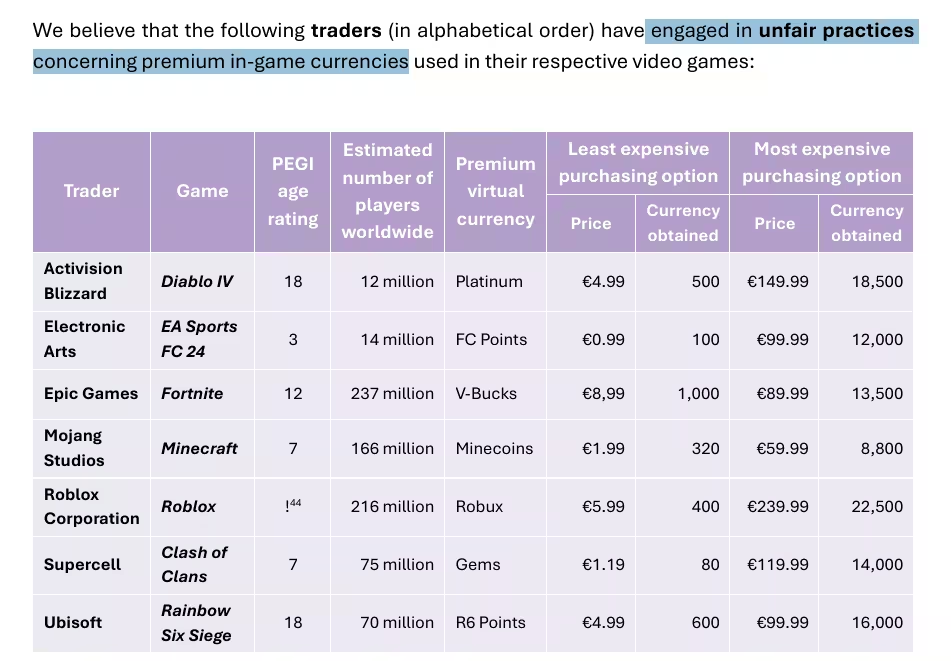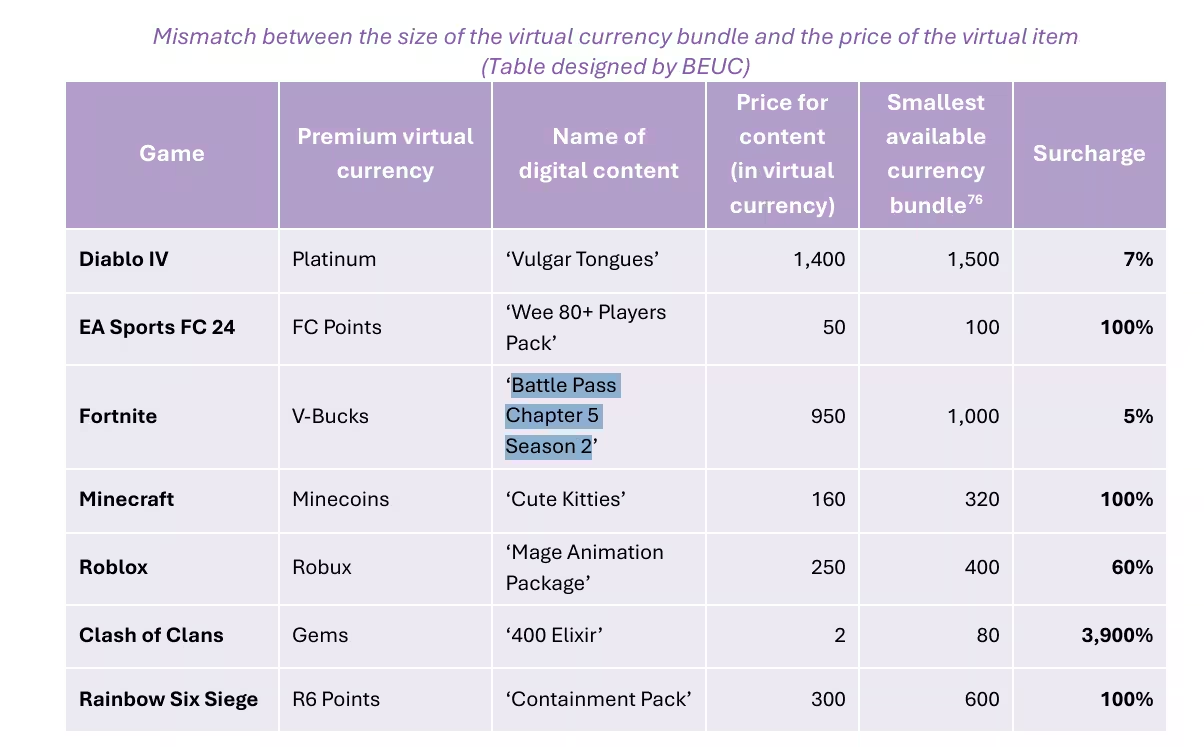In recent years, many games have shifted to virtual currencies like V-Bucks (fortnite) and Robux (Roblox) that can be bought with real money, offering players a way to purchase in-game items, skins, and other content.
However, a new complaint from the European Consumer Organization (BEUC) and 22 member organizations from 17 countries accuses major game developers of manipulating consumers with deceptive in-game currency practices.
The complaint targets industry giants like:
- Epic Games (creators of Fortnite)
- Electronic Arts (EA)
- Roblox Corporation
- Microsoft’s Activision Blizzard
- Mojang Studios (the minds behind Minecraft)
- Supercell
- Ubisoft Entertainment
- Others
What Is the Complaint About?
The BEUC accuses these companies of using “deceptive tactics” to trick players, especially kids, into overspending on in-game purchases.
This business model has become more prevalent, as many games now offer items that can only be bought using virtual currencies rather than real money.
BEUC’s director general, Agustín Reyna, claims that young players are easily swayed by virtual currency systems and are encouraged to spend more than they would otherwise.
In line with the complaints, BEUC also released the “Game Over” report which highlights how these big “traders” engaged in unfair practices.

One notable example involves the game Fortnite, where a battle pass costs 950 V-bucks, but the smallest bundle available for purchase is 1,000 V-bucks. Since there are no items priced at 50 V-bucks, players are left with unspent currency unless they buy more, effectively pressuring them into additional purchases.

Hence BEUC is proposing:
- A complete ban on paid in-game currencies
- At the very least, prohibiting players under 18 from using them
- Better protection for consumers by clarifying their legal rights in these digital transactions
How Are Game Companies Responding?
While most of the companies named in the complaint remained silent on the matter, Video Games Europe did release a statement with TechCrunch. They emphasized that video games with in-game purchases are required to display clear information about those purchases, including the use of virtual currencies.
Video Games Europe also highlighted the PEGI [Pan-European Game Information] system, which ensures that games provide clear information about in-game purchases and offer receipts for real-money transactions.
According to their statement, the majority of children who spend money on games do so under the supervision of their parents, with clear limits in place.
However, BEUC’s findings challenge this and call for the actual enforcement of these regulations.
Previous Cases on Gaming Monetizations
This isn’t the first time the gaming industry has faced criticism for its monetization methods. EA, for instance, has long been criticized for its use of loot boxes in FIFA’s Ultimate Team mode. Loot boxes, which offer random rewards, are often compared to gambling, particularly because of their appeal to younger players. In 2020, this controversy even led to a class-action lawsuit.
In 2022, Epic Games faced similar accusations in the U.S., where the company was ordered to pay $520 million in fines. The U.S. Federal Trade Commission (FTC) accused the Fortnite developer of using deceptive tactics to trick players into making unintended purchases and violating children’s privacy laws.
As pressure mounts, these companies may soon face tougher regulations in Europe, especially when it comes to protecting younger players from overspending.
Industry insiders are keeping a close eye on the matter and will keep you informed of any further developments. so subscribe to Gaming Foodle and stay updated!
Discover more from Gaming Foodle
Subscribe to get the latest posts sent to your email.

